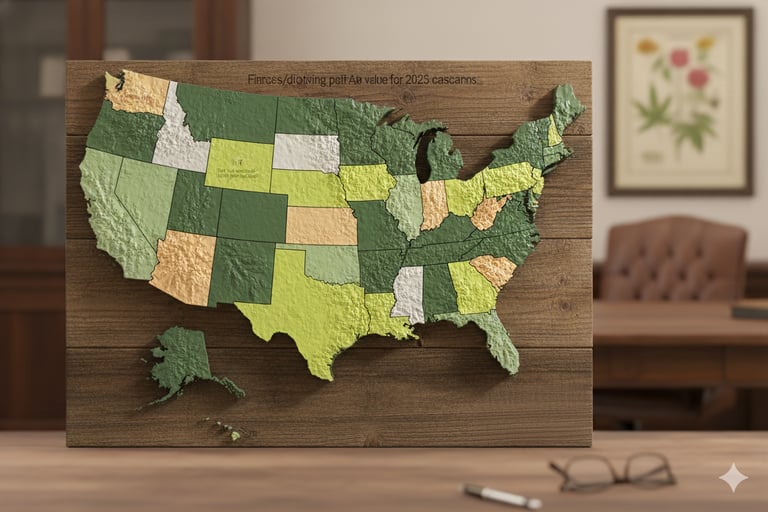Republicans Just Killed Online Weed — Hemp THC Loophole Closed
Congress moved to shut down the booming online delta-8 market by closing the hemp THC loophole, a policy push led largely by Republican lawmakers.
POLITICS


WASHINGTON — Congress has approved new restrictions on hemp-derived THC products, moving to close a loophole created by the 2018 Farm Bill that allowed intoxicating cannabinoids like delta-8 and delta-10 to be sold nationally with minimal regulation.
For years, manufacturers relied on the Farm Bill’s definition of legal hemp — cannabis containing less than 0.3% delta-9 THC — to produce chemically converted THC alternatives that created the same psychoactive effects as marijuana. Those products became widespread in gas stations, smoke shops, and online marketplaces, often without age limits or consistent testing.
Lawmakers from both parties have now agreed that the loophole has grown beyond what Congress intended.
What the New Rules Do
The measure, included in a broader agricultural package, imposes the following restrictions:
Reclassifies chemically converted THC (including delta-8 and delta-10) as controlled substances.
Limits total THC content — not just delta-9 — in hemp products.
Strengthens federal oversight of manufacturing and distribution.
Allows states to continue imposing stricter bans if they choose.
Supporters say the changes are aimed at closing a regulatory gap exploited by companies creating psychoactive products under the label of legal hemp.
Industry Pushback
The hemp sector — estimated at around $30 billion nationally — has warned that the new rules could force widespread shutdowns.
Producers argue:
The hemp industry relied on the original rules when investing large sums into processing equipment and distribution networks.
Many small businesses could be wiped out overnight.
Consumers accustomed to hemp-derived THC may turn to unregulated black-market alternatives.
Some lawmakers, including Sen. Rand Paul, criticized the decision, calling it an overreach that misunderstands the differences between hemp and marijuana.
Why It Matters
The hemp-derived THC market rapidly expanded after 2018, outpacing state and federal oversight and creating a nationwide system of quasi-legal intoxicating products. Regulators, medical groups, and parent organizations have raised concerns about:
inconsistent potency
inaccurate labeling
youth access
lack of standardized testing
hospitalizations tied to contaminated or mislabeled products
With Congress now intervening, manufacturers will have to either meet the stricter standards or shift their business models entirely.
What’s Next
The rule change is expected to face:
Litigation from hemp industry groups
State-level adjustments, as some states adopt even stricter rules
Market restructuring as companies move into compliant CBD, fiber, or industrial hemp sectors
The federal government’s move signals a broader trend: increased scrutiny of gray-area cannabinoids and a push toward unified national standards governing psychoactive substances.


Where States Stand on Hemp Regulations
The map above shows how states positioned themselves under federal hemp rules during the transition away from the 2014 Farm Bill’s pilot program. Some states maintained older frameworks, while others adopted new USDA-approved plans or operated under federal oversight.
Dark Green — States operating under 2014 pilot rules: These states continued using their original hemp frameworks while transitioning to new federal requirements.
Medium Green — States with an approved USDA plan: These states submitted updated hemp production plans that met federal standards and were approved for the season.
Light Green — Operating under default USDA rules: States without an approved plan followed federal regulations directly.
Yellow — Under USDA review: These states had submitted updated plans but were still waiting for approval.
Orange — Hemp production currently illegal: States where hemp cultivation was not permitted during the period shown.
Beige — Unknown or transitional status: States with unclear or partially reported compliance information at the time.
This regulatory patchwork demonstrates how differently states handled hemp oversight—one of the main reasons the industry grew rapidly and unevenly, setting the stage for Congress’s decision to close the hemp-THC loophole today.
